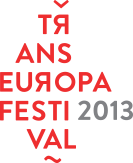Crise économique
How do you spell “Crisis”?
The European economic crisis, most associated with Greece in the minds of the population, is also expressed in terms deriving from ancient Greek: krisis literally meant “to decide, to judge”, and the term was used for a turning point in a disease, the critical moment of going towards recovery or death; economy derives from oikonomia, meaning “household management”. The European economic crisis, then, is a turning point in the disease affecting the common European household, and the question is whether the disease will continue or whether a turning point towards recovery has been reached.
The sovereign debt crisis in Europe has revealed an underlying political crisis within the European Union. That political crisis is a crisis of sovereignty itself, a crisis in the very possibility of governance, which somewhat ironically expresses itself in a monetary form in the debt crisis. We could say that the first victim of the economic crisis is democracy itself, but it would be more accurate to say that the economic crisis was brought about by a failure in democracy. The response must therefore insist upon democracy above all. In the occupy movements as well as other forms of citizens’ mobilisation, we have seen that many citizens understand the need to reinvent democracy at the same time as they demand a reinvention of the economy to a more equitable form.
Transeuropa Festival aims to provide a connection between the local and the transnational, acting at different levels, tackling the multiple facets of these challenges, to set the foundations for imagining alternative forms of economies and reinvigorate a common sense of solidarity.
[ai1ec tag_name=”Economic Crisis” view=”agenda”]











